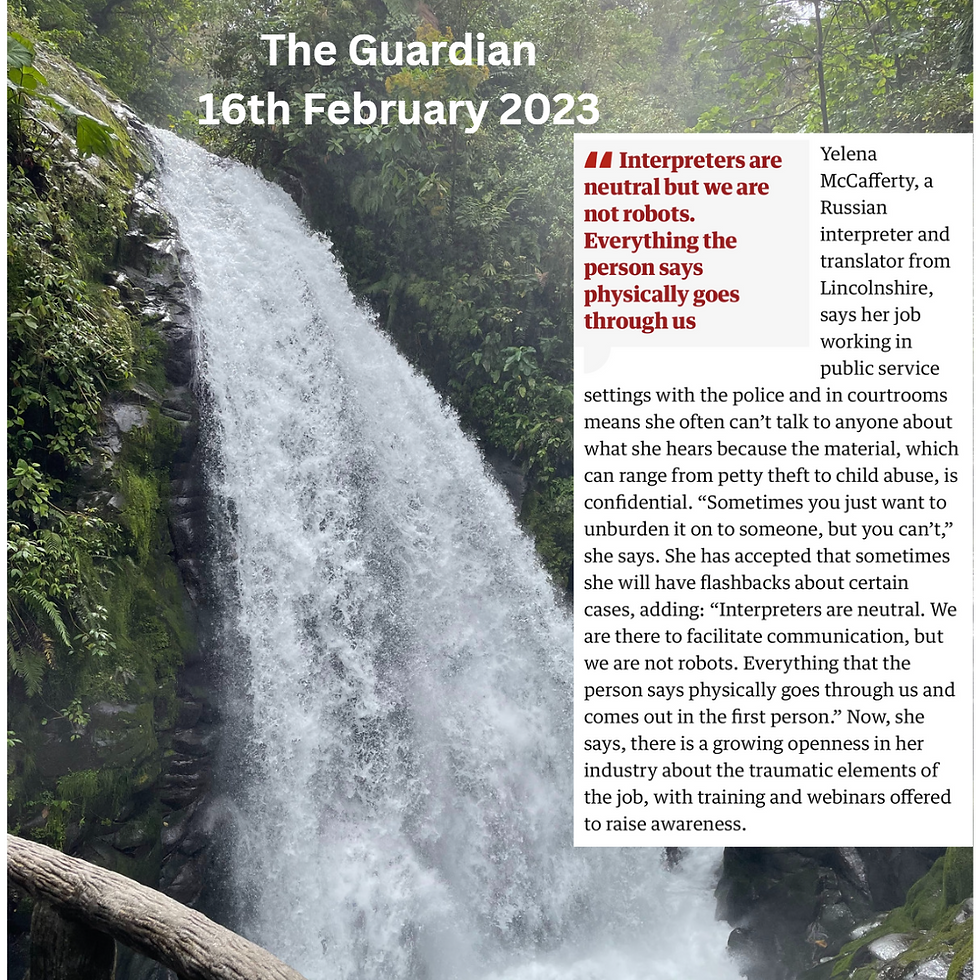Seeing eye to eye: choosing a suitable interpreting arrangement
- Yelena McCafferty

- Mar 9, 2025
- 2 min read
Updated: Sep 29, 2025
Face-to-face interpreting or remote interpreting? It’s not uncommon for us to give two quotes for interpreting services these days, with a remote option coming in cheaper.
Apart from saving money, remote interpreting can also save time as it eliminates travel. And while it can work for lots of scenarios, from media interviews to online training, there are times when a physical presence of all parties is required.
I specified the type of interviews for a reason: while remote conversations can work with journalists - and we see a lot of them live on TV, - police interviews, for example, are nearly always conducted on site. There are a number of factors to consider here: security, confidentiality and reliability before I even mention a stable internet connection being a must. Risks can of course be mitigated, for instance, at the start of each remote court hearing in the UK, parties are warned they are not allowed to record anything and must be in a private room alone.
Not all court hearings can be conducted remotely though. Sometimes the barrier is legal constraints. I’ve had interpreting assignments cancelled because one of the parties in the hearings was abroad and there was no reciprocal legal agreement between the UK and that country to allow the party to join remotely. If the witness is overseas, the UK court must ensure that the foreign country allows giving evidence remotely.
Disability is another reason why remote interpreting may be impractical. At one assignment the person who needed the interpreter most was hard of hearing. Then came a series of issues: a lost remote control for the hearing aid, a flat battery and no immediate fix. In the end, the only solution was to rearrange the meeting so that everyone could attend in person.
In medical contexts, psychologists often prefer to work with an interpreter in person as conversations tend to be smoother. Better rapport and trust can be built thanks to visible body language and facial expressions. Some psychological assessments involve visual tasks, such as IQ testing, and are hard to replicate remotely.
The above are just a few examples calling for an all-option approach to booking interpreters. While remote interpreting may work in most cases, some situations demand a physical presence.

[Tip: get in touch with us via enquiry@talkrussian.com or WhatsApp, outlining your requirements for the event where you will need a Russian interpreter.]



Comments